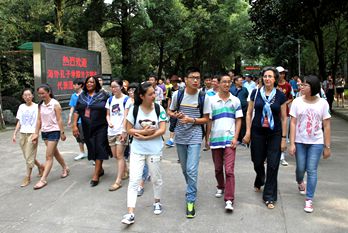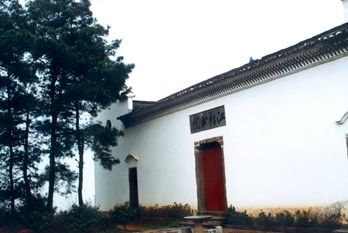Zhejiang details rules on tightening govt spending
Evaluation system to help ensure more money being used to improve livelihoods
Provincial-level government agencies in Zhejiang are taking a range of actions to cut their spending and improve efficiency in order to funnel more funds to the public.
Zhejiang recently issued measures to establish a comprehensive evaluation system comprised of 23 specific indicators, covering control of personnel expenses, reduction of administrative costs and use of assets, said the Zhejiang Provincial Department of Finance.
The measures aim to cut spending, reduce nonurgent and nonrigid expenditures, and ensure more finances are used to improve people's basic livelihoods.
The department stipulated that 153 Party and government organs and other public institutions managed under the Civil Service Law in Zhejiang should adopt a savings-oriented approach, and set a good example for society on the virtues of sustainability and frugality.
An evaluation mechanism will be set up to evaluate the success of the new measures. Five-star, four-star and three-star rankings will be issued on the efforts of departments and institutions to cut out unnecessary expenses.
The evaluations will play an important part in the prioritization of budget arrangements in the coming years.
Party and government organs should take the lead in exhibiting frugality, the department said
For example, more effective control of expenditure on public meetings, official vehicles, food and accommodation, training, and forums will be adopted.
At the same time, government agencies are required to allocate more funds to programs that improve people's lives so that the province's limited resources are used to maximize social and livelihood benefits.
Zhejiang's general public budget expenditure in the first half of this year was 661.2 billion yuan ($91.4 billion), official statistics showed. Expenditure on education, social security and employment, health care, housing security and others totaled 295.1 billion yuan, accounting for 44.6 percent of the general public budget expenditure, according to the Provincial Bureau of Statistics.
The province adopted a recommendation last month to adjust the funding system for the basic pension covering employees of local government enterprises. The recommendation was made to address different situations in provincial-level regions to ensure more pension payments to retirees.
For example, the pension for retirees, who are 72 years old and have paid contributions for 35 years, can increase by up to 187.1 yuan every month this year.
There were over 9 million retirees in Zhejiang by the end of 2021, statistics showed.
Reduction of expenditure by local government agencies will also open the way for lower taxes and fees to help improve their competitiveness.
The government's belt-tightening policies should be adhered to for the long term, Liu Kun, China's finance minister, said during a series of conferences earlier this year. "Costs should be decreased so that more financial resources can be used to guarantee people's basic livelihoods and the market entities," he said.
At the end of 1988, the Zhejiang government proposed cutting outlays to allow more funding for people's livelihoods.
In Changshan county, Quzhou, the local government recently introduced carpooling and developed an online platform for shared use of government vehicles.
The approach has reduced the cost of official vehicles, and greatly improved the allocation of resources. So far, the cost per trip of government vehicles has dropped by 29 percent, the local government said.
"As a demonstration zone for realizing common prosperity, the formulation and implementation of such policies in Zhejiang represent the determination of the Communist Party of China and the government," said one netizen on Sina Weibo.
Li Yan, director of the Central University of Finance and Economics's Government Budget Management Institute, told financial news outlet Yicai that behind the cost-cutting drive is the need to optimize departmental responsibilities as well as arrangements within departments.
"Therefore, we should prioritize clear departmental rights and responsibilities, focus on performance, and promote improvements in foundational budgetary work," Li said.
Fang Xiaoying and Chen Meiling contributed to this story.
mazhenhuan@chinadaily.com.cn

 City brand logo - fist-and-palm salute
City brand logo - fist-and-palm salute Confucianism on campus
Confucianism on campus The culture of the academy
The culture of the academy